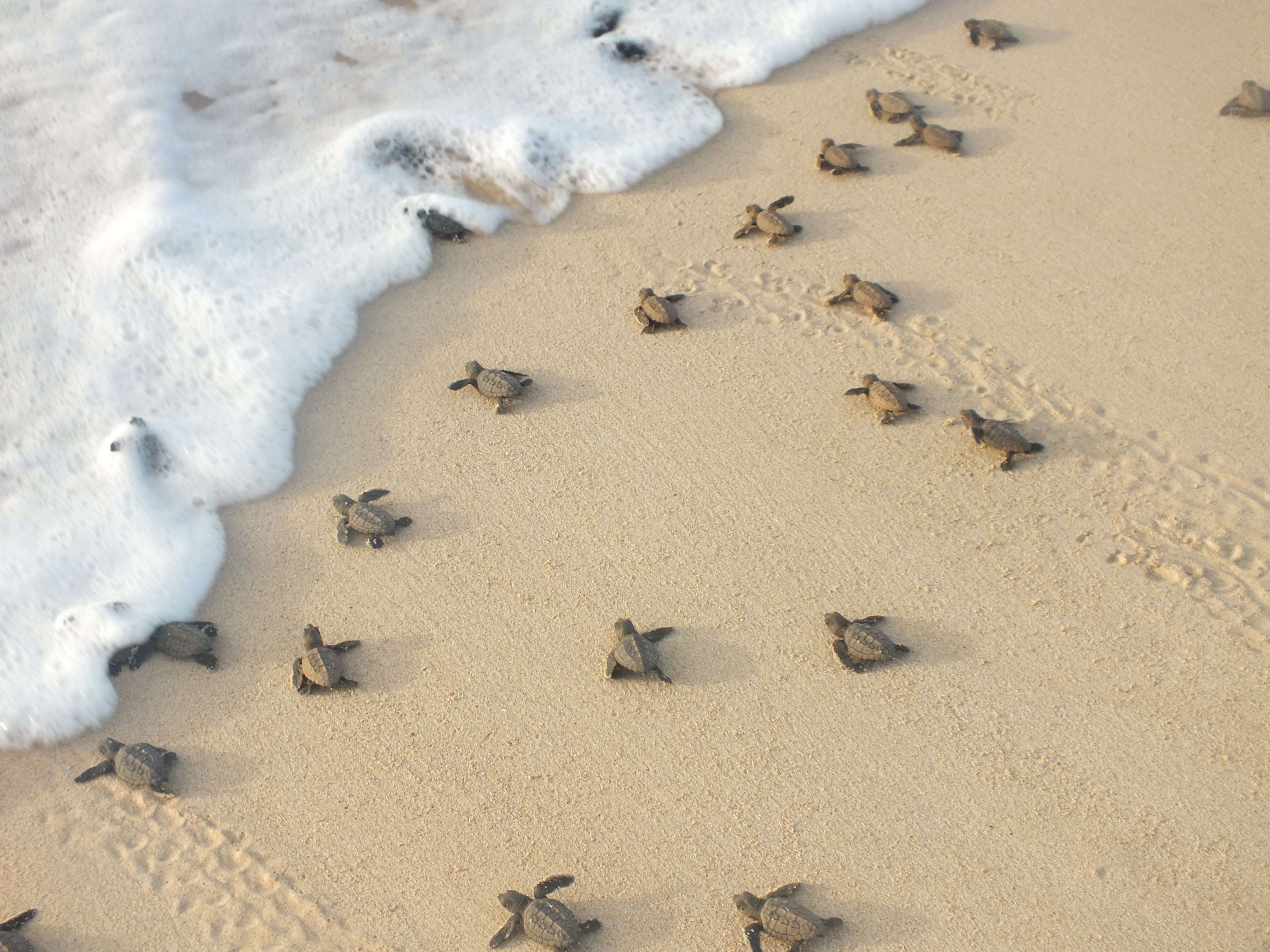This website uses cookies so that we can provide you with the best user experience possible. Cookie information is stored in your browser and performs functions such as recognising you when you return to our website and helping our team to understand which sections of the website you find most interesting and useful.

Loggerhead sea turtle hatchlings emerging from warmer sands are less likely to survive their perilous first steps from the sand to the ocean, research has found.
This is because hatchlings incubated in warmer sands emerge weaker and slower, meaning they are more likely to be eaten by lurking ghost crabs as they crawl towards the sea.
The research, conducted over three years in Cape Verde — a key breeding spot of the endangered loggerhead turtle — suggests that global heating is likely to harm the survival of hatchlings.
“Weaker hatchlings emerge in smaller numbers and take longer to reach the sea,” Dr Samir Martins, a marine biologist working with Bios, an environmental group in Cape Verde, and lead author of the new research published in the journal Climatic Change, told The Independent.
“This increased their exposure time and risk to ghost crab predation.”
For the experiment, the researchers incubated turtle eggs at different temperatures at a beach nesting site in Cape Verde.
To do this, they covered the turtle nests in a layer of either grey or black sand. The darker sand absorbed more sunlight, causing black nests to heat up faster than grey nests.
The scientists then monitored the turtles as they hatched and attempted to take their first steps from the beach into the sea.
The results found that warmer nests had a rate of egg mortality that was 33 per cent higher than cooler nests. In addition, hatchlings emerging from warmer nests were weaker, and so more likely to be eaten by ghost crabs on their journey to the sea.
Ghost crabs hunting loggerhead sea turtle hatchlings in Cape Verde
(Samir Martins/Bios)
The research also found that hatchlings from warmer nests were much more likely to be female.
This is because sea turtles, along with many other reptiles, use temperature-dependent sex determination. This means that the sex of a developing turtle is decided by the temperature of its nest, with warmer temperatures favouring females and cooler temperatures favouring males.
The study is not the first to report this phenomenon. A previous study conducted in Cape Verde showed the proportion of loggerhead turtle hatchlings being born female has risen from around 59 per cent in the 1850s to close to 70 per cent today.
Researchers had previously suggested that a skew towards female sea turtles with global heating could be beneficial to their survival. This is because male turtles are able to mate with multiple females in one season, meaning a higher proportion of females might lead to more breeding.
However, the new research by Dr Martins pours cold water on this idea. This is because the negative impact of warming on the survival of hatchlings as they crawl towards the sea is likely to be larger than any benefit gained by there being extra females around, according to the study.
In addition to the climate crisis, loggerhead sea turtles also face large threats from being caught in fishing nets, and from loss of their natural habitat on undisturbed beaches.
“The increase in temperature due to climate change is jeopardising the reproductive success not only of marine turtles but also of many other marine and terrestrial species,” said Dr Martins. “Hence, we have to reverse this situation. In the near future, we may lose a lot of our biodiversity.”



 Africana55 Radio
Africana55 Radio 
